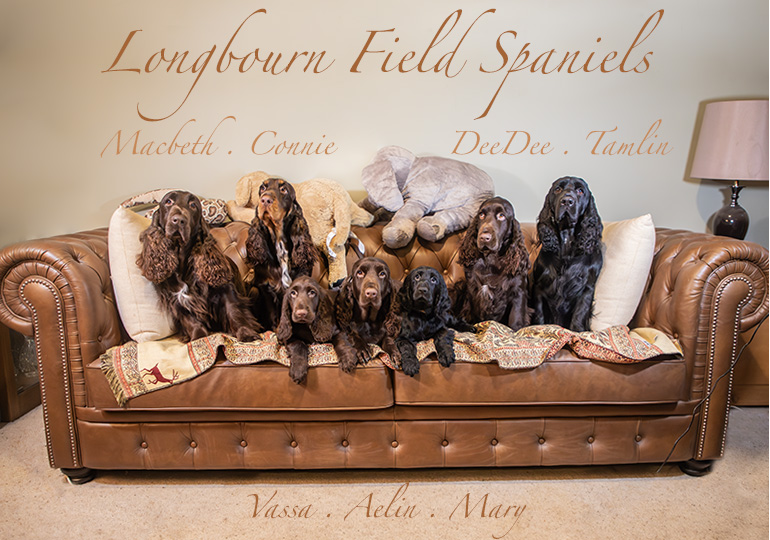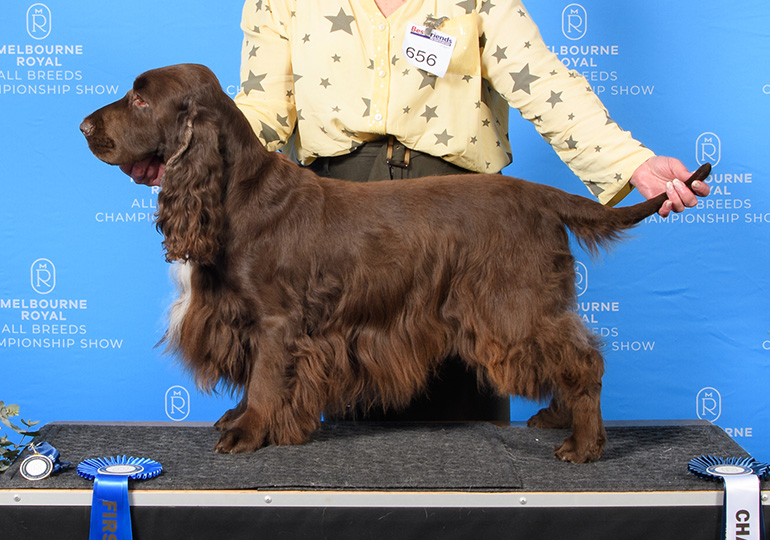Breeds
Field Spaniel

GROUP 3 - GUNDOGS
Brief History
Field Spaniels were originally developed in England to be all-black show dogs in the late 19th and early 20th centuries; other colours have since been developed. The breed has had a chequered career since they evolved some 150 years ago, with numbers falling very low at times, despite several revivals over the years. Although numbers in the breed are steadily increasing, the Field Spaniel is still listed by the Kennel Club (UK) as a Vulnerable Native Breed, in danger of becoming extinct.
Average Life Span
When considering a dog, please realise that you are taking it on for its lifetime.
The average life span is 10 to 14 years.
Temperament
The Field Spaniel is unusually docile. He is an active, independent breed, sensitive and affectionate.
General Breed Description
The Field Spaniel is a small to medium sized dog; he is well balanced and noble, being a sporting Spaniel built for activity and endurance. He excels in a variety of dog sports including Agility, Tracking and Scent Work. The Field Spaniel comes in solid colours of black and liver, or in roan, and they may have tan points or white markings on throat and chest.
Coat and Care Requirements
Field Spaniels carry less coat than the other spaniel breeds, and one kept as a pet requires little grooming. Besides being bathed, brushed and combed, all Field Spaniels need to have their feet and ears trimmed regularly, and their nails clipped.
Size
Height: 46cms (18ins).
Weight: 18 to 25kgs (40 to 55lbs).
Health
All breeds have individual health issues. When speaking to breeders it is recommended you enquire about the breed’s health and what health testing the breeder does. The Field Spaniel is generally a healthy breed, however health conditions do occur occasionally. These may include Progressive Retinal Atrophy (PRA), Hip Dysplasia (HD) and Elbow Dysplasia.
Suitability
The Field Spaniel is an ideal pet for any family who wants an active dog. They do require regular exercise, at least a daily walk and some fun play. They like company, either human or that of another animal, and are not suited to being left alone all day, as they may become bored and destructive.
They should be socialised with other animals and people from an early age, and obedience training is recommended for this very intelligent breed.
In Conclusion
Now you know a little more about this breed. If you have decided this is the dog for you and wish to investigate further, please contact the Breed Club or Dogs Victoria. They will be able to give you information about available puppies and also suggest dog events where you can see the breed and speak to breeders. In this way you will gain a better perspective of the breed and its needs. With any breed of dog, it is important to research and determine suitability for your lifestyle before committing to a puppy which will be a part of your family for many years to come.
Whilst many breeds are recommended for families, it is imperative that when children are with dogs they are supervised at all times. Basic obedience training is a vital part of dog ownership.
Dogs Victoria is about the responsible ownership of all dogs and in particular the preservation of pure breeds.
Link to Dogs Australia Breed Standard: https://dogsaustralia.org.au/breed/detail/2
Breeders





